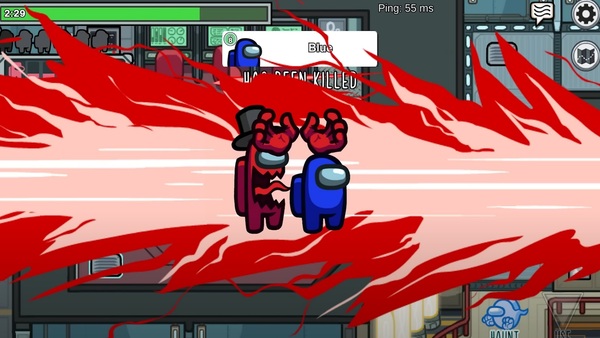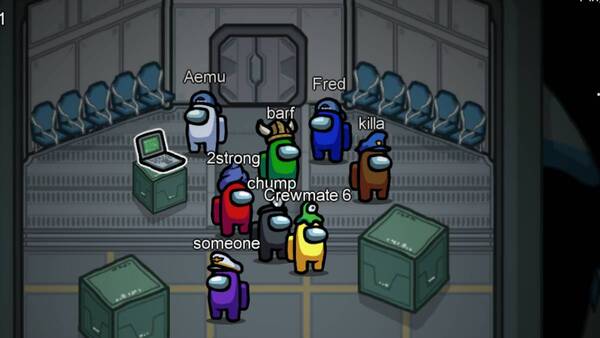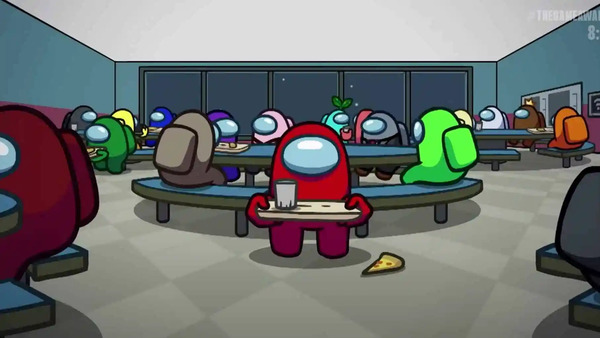Advertisement
Popular Now
Since its release, "Among Us" has captivated players worldwide with its social deduction gameplay, but one persistent problem threatens to undermine the experience: cheating. This issue takes various forms, from hacking and external apps to exploitative in-game behavior, leading to unfair advantages. Such cheating disrupts the delicate balance of trust, strategy, and deception that makes the game engaging. This article will explore the many dimensions of cheating in "Among Us," its impact on the player experience, and potential measures to reduce it for a fairer game.
H2: The Rise of Cheating in Among Us
As "Among Us" gained popularity, so did cheating, with players employing hacks and mods to gain an unfair advantage. Understanding the root causes of this issue can provide insights into effective countermeasures.
H4: How External Communication Affects Fair Play
When players use voice chat, it can lead to immediate identification of Impostors. This type of meta-gaming is challenging to prevent but has a significant impact on game fairness.

H2: The Rise of Cheating in Among Us
As "Among Us" gained popularity, so did cheating, with players employing hacks and mods to gain an unfair advantage. Understanding the root causes of this issue can provide insights into effective countermeasures.
H3: Popularity and the Rise of Hacks
With millions playing globally, "Among Us" attracted hackers who exploit vulnerabilities for fun or frustration. Increased accessibility has also led to more players testing hacks.H3: The Social Aspect and Impact on Gameplay
Cheating doesn’t just disrupt gameplay mechanics; it destroys the core social dynamic of the game, affecting player trust and enjoyment, especially in public lobbies.H2: Types of Cheating in Among Us
Cheating in "Among Us" manifests in different ways, each impacting gameplay uniquely. Understanding these forms can help developers target the issue more effectively.H4: Hacks and Mods
Popular cheats include visibility hacks, speed boosts, and instant wins. Mods also enable unearned roles and abilities, breaking the game’s intended balance.H4: Meta-Gaming and External Communication
Meta-gaming occurs when players use outside information or communicate externally (like through voice chat) to identify Impostors, often making the game unfair for others.H2: Hacking and Exploits: A Breakdown
Hacks allow players to bypass game rules entirely, ruining the experience for honest players. Common hacks have become so pervasive that public lobbies are often affected.H3: Impacts of Visibility and Speed Hacks
Visibility hacks allow Impostors to see Crewmates’ locations and sabotage more effectively. Speed hacks give an unfair mobility advantage, letting players escape or chase with ease.H3: The Problem of Instant Wins
Instant-win hacks, which abruptly end the game in the hacker’s favor, are frustrating for players who want a fair match. They render gameplay pointless, undermining the game entirely.H2: Meta-Gaming in Among Us
Meta-gaming, while not a hack, is a form of cheating that involves sharing in-game information through external means, such as voice chat, affecting fair play.H4: How External Communication Affects Fair Play
When players use voice chat, it can lead to immediate identification of Impostors. This type of meta-gaming is challenging to prevent but has a significant impact on game fairness.
H4: Proposed Solutions for Reducing Meta-Gaming
Implementing in-game voice features with limitations, such as temporary silence after kills or during sabotages, could discourage meta-gaming and maintain in-game immersion.H2: Cheating’s Effect on Game Balance
Cheating creates an unfair balance, discouraging honest players. This imbalance affects both Crewmates and Impostors, leading to unsatisfactory gameplay.H3: Damage to Crewmate and Impostor Dynamics
When cheats skew the balance, it impacts both sides. Crewmates can’t fairly identify impostors, and impostors lose the challenge of stealth, leading to a stale experience.H3: The Resulting Loss of Player Trust
In online multiplayer games, trust in the system is essential. Persistent cheating erodes trust, leading players to abandon the game or play only in private lobbies.H2: In-Game Anti-Cheat Measures
In response to cheating, developers have introduced anti-cheat systems, but these have had varying levels of success. Improving these measures could benefit all players.H4: Detection of Known Hacks and Exploits
Systems that detect common hacks, like speed boosts or visibility cheats, help limit cheating but are not foolproof, as hackers can develop new methods to evade detection.H4: Challenges in Implementing Anti-Cheat Measures
Implementing an effective anti-cheat system is challenging for a small team like Innersloth. Balancing resource allocation between development and security is a key issue.H2: Proactive Strategies to Prevent Cheating
Beyond reactive anti-cheat measures, proactive strategies can deter cheating from the outset, creating a healthier game environment.H3: Education and Encouragement of Fair Play
Educating players on the impact of cheating and encouraging fair play through community guidelines can create a culture that discourages cheating.H3: Incentivizing Private and Friends-Only Lobbies
Players are less likely to cheat among friends, so promoting private games through in-game rewards or achievements could help reduce cheating.H2: The Role of the Community in Anti-Cheat Efforts
The "Among Us" community plays a crucial role in reporting and identifying cheats. Leveraging this collective effort can make a difference in combating cheating.H4: Reporting Mechanisms for Fair Play
An improved reporting feature with clearer options for common cheats could empower players to report infractions, providing developers with useful data for improvements.H4: Encouraging Community Moderation
Community moderators, possibly voted on by players, could help keep public lobbies fair. These moderators could issue warnings or recommend players for temporary bans.H2: Improving Gameplay Design to Reduce Cheating
Developers can also reduce cheating by adjusting game mechanics, making certain cheats less effective or desirable, and promoting fair play.H3: Randomization of Key Game Elements
Randomizing elements such as task locations and map layouts each round could make hacks like visibility cheats less impactful by changing the variables players can control.H3: Time-Limited Features for Suspicious Behavior
Adding timers or restrictions on certain actions, such as limiting the number of sabotages within a set time, could deter players using cheats for sabotage advantages.H2: Developer and Community Collaboration
Developers working with the community can enhance anti-cheat efforts. Open communication allows both sides to collaborate on solutions and improvements.H4: Transparency in Anti-Cheat Updates
Innersloth can keep players informed about ongoing anti-cheat measures, building trust and encouraging players to report new cheats when discovered.H4: Feedback from Players on Persistent Issues
Soliciting player feedback on persistent cheating problems, perhaps through in-game surveys, could give developers targeted insights for effective responses.
















